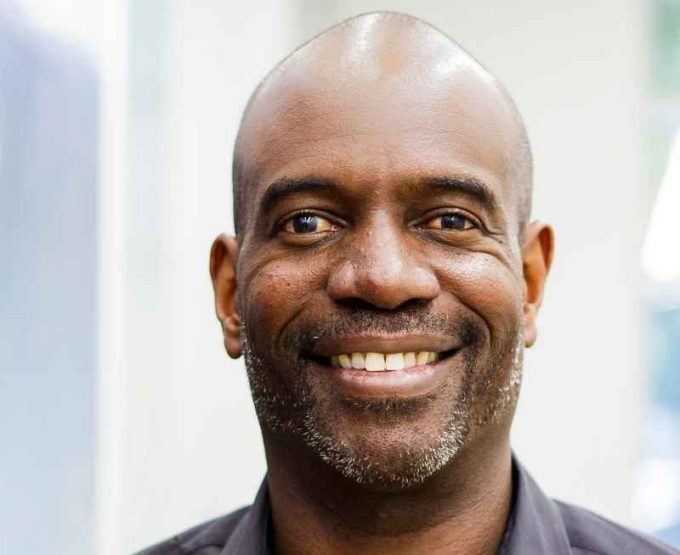| |
| |  | | As an early-stage investor, Floodgate's Ann Miura-Ko looks for startups that have experienced two breakthroughs: inflection insight and product-market fit. At last week’s TechCrunch Early Stage virtual event, several founders and investors took part in breakout sessions focused on fundraising, growth, recruiting and other top-of-mind topics for anyone who’s getting a company off the ground. Miura-Ko used her session to share the new framework Floodgate is using to identify opportunities: “Your insight, if it's nonconsensus, means that it's more of a secret, and it gives you more time to be able to pursue it. Obviously, if your insight is wrong, there's not much we can do about it. But the fact that it's nonconsensus, and it has the potential to be right, that's the kind of insight I like to bet on.” We’ve recapped several interviews and panels in today’s newsletter, with more to come. Have a great week, Walter Thompson
Senior Editor, TechCrunch
@yourprotagonist Read more | | | |
| |  Image Credits: Nigel Sussman | | In yesterday’s edition of The Exchange, Alex Wilhelm unpacked SAP’s announcement that it plans to take “experience management” firm Qualtrics public. SAP purchased Qualtrics for $8 billion in 2018, an acquisition that “put Utah’s startup scene on the map,” Alex writes. To better understand the spin-out, he looked back at Qualtrics’ past earnings and growth to get a sense of the company’s potential value in the public markets. “Did SAP overpay? Did it get a deal? Let's find out what Qualtrics might look like in 2020.” Read more | | | |
| |
| |  Image Credits: GV | | At TC Early Stage, Lo Toney, founding managing partner at Plexo Capital, advised founders crafting pitch decks to think like product managers when telling their story. “The framework of product management is very similar to the same playbook used by an early-stage investor and early-stage investors in the absence of an abundance of data,” Toney said. “They're really thinking very similar to a product manager to evaluate an opportunity.” Read more | | | |
| |  Image Credits: massimo colombo / Getty Images | | In a TC Early Stage panel titled, “How to get your enterprise idea to product-market fit,” Frederic Lardinois talked to Greylock partner Saam Motamedi about why startups should create a customer advisory board. A CAB consisting of three to six customers dramatically shortens the time it takes to gather actionable intelligence from users, Motamendi said. "The idea here is [that] you have this feedback loop from customers back to your product where you build, you go get feedback, you iterate — and the tighter this feedback loop is, the faster you'll get to product-market fit." Read more | | | |
| |  Image Credits: Photo by Drew Angerer/Getty Images / Getty Images | | In the latest edition of her “roundup and analysis of labor, and diversity and inclusion in tech,” Megan Rose Dickey reported on Uber’s plans to expand D&I, representation in leadership roles and examined how interest in anti-racism is reflected in Google Trends. She also spoke to CODE 2040 CEO Karla Moterroso about performative wokeness by corporations after George Floyd’s murder, took a closer look at Facebook’s diversity and covered the latest developments in gig life. Read more | | | |
| |  Image Credits: Kilito Chan / Getty Images | | As co-founder and CEO of Neo, a VC fund and mentorship community that connects young engineers and industry veterans, Ali Partovi is an authority on recognizing engineering talent. For an Early Stage breakout session, he spoke to TechCrunch’s Brian Heater about best practices for hiring early engineers, including some insight about the fierce competition for talent in Silicon Valley: “If somebody is more excited about the perks of working at Google, they're probably not the person you want anyway,” he said. “I wouldn't try to compete on that dimension at all. The type of person you want is someone who is going to be from the beginning a missionary and ideologue.” Read more | | | |
| |  | | When I was about five years old, I disassembled my parents’ alarm clock with a screwdriver to better understand how it worked. Looking back, asking for permission instead of forgiveness was probably a better choice, but I definitely learned a lot. For our first Pitch Deck Teardown, no one got a stern talking-to. Instead, Accel's Amy Saper and Bessemer's Talia Goldberg offered advice to the founders of The Charging Company, Alfi, Food Group and Centerly about how to tell their stories for maximum impact. We’re planning on bringing this event to Disrupt this fall, but if you missed it, click through to watch the entire conversation. Read more | | | |
| |  Image Credits: Bryce Durbin / Bryce Durbin | | I’ve been backstage at demo days, and it’s a unique experience. The tension and anxiety in the air is palpable, but it’s balanced by overwhelming optimism that radiates off each participant. Attendees share a strong camaraderie, deals are made in hallways and lives can change in an instant. But if your accelerator goes virtual, do those benefits still persist? Natasha Mascarenhas spoke to Cleo Capital founding partner Sarah Kunst, Y Combinator CEO Michael Seibel and others about how online-only accelerators are adapting during COVID-19. "We're learning this right now,” said Seibel. Read more | | | |
| |  Image Credits: Nura | | Hardware as a service is still fairly uncommon, but Melbourne-based consumer electronics company Nura is using the HaaS model to market its NuraNow headphones that offer customized sound profiles. “If it's providing continuous value, then it should be worth paying for,” Y Combinator Partner Eric Migicovsky told TechCrunch. Read more | | | |
| |  Image Credits: alexsl / Getty Images | | When Natasha Mascarenhas and Alex Wilhelm asked 13 Boston-area VCs for a near-term forecast several weeks ago they received a mix of opinions. As it turned out, “the more bullish were more right than the bears,” as Q2 financing in the region saw its highest level since Q3 2018. Year-over-year, the amount of total dollars invested in Boston rose 61% in Q2, “while total rounds in the city slipped by a little under 5%.” Read more | | | |
| |  Image Credits: Peter Dazeley / Getty Images | | At some point, your startup will have a Very Bad Day, and you will need a response plan. Unfortunately, many of us assume that woe will befall someone else, which means you may find yourself sorting through “crisis management” web search results. TechCrunch Editor-in-Chief Matthew Panzarino moderated a panel with Margit Wennmachers, operating partner at Andreessen Horowitz, and Miguel Helft, editorial director at Message Lab, about how to be the best at preparing for the worst. Read more | | | |
| |
| |
| |
| |
Post a Comment